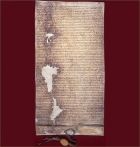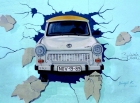Sense of period
Developing a sense of period is about going beyond knowledge of dates and period labels to help students appreciate the kind of world in which the people that they are studying actually lived. Such understanding is obviously supported by knowledge of key events, but it also depends on being able to visualise the period – recognising the kind of conditions in which people lived – and on an appreciation of the routine ideas and assumptions that shaped their thinking. The resources in this section offer a range of strategies to help teachers plan for the development of this kind of awareness, focusing particularly on the different kinds of sources that can be used to make the ideas and attitudes of people in the past accessible and meaningful in their particular context.
-

Year 9 - Connecting past, present and future
ArticleClick to view -

Year 9 face up to historical difference
ArticleClick to view -

‘If you had told me before that these students were Russians, I would not have believed it’
ArticleClick to view -

‘Man, people in the past were indeed stupid’
ArticleClick to view -

‘One big cake’: substantive knowledge of the mid-Tudor crisis in Year 7 students’ writing
ArticleClick to view

